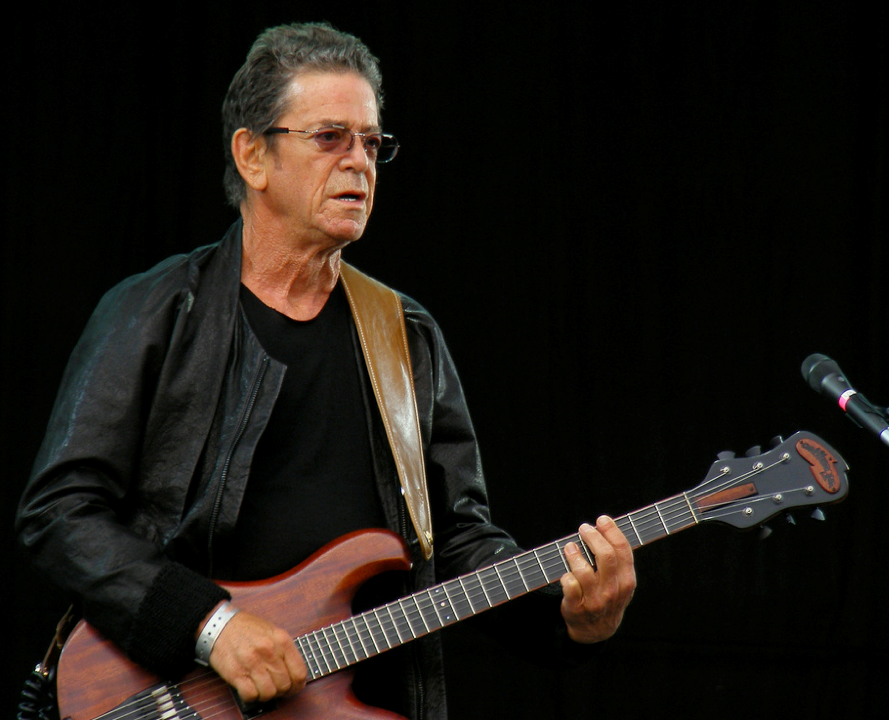Two celebs from opposite sides of the pond, one gone and one very much alive, captured the world’s attention this past week.
The late Lou Reed was a divisive figure. Upon hearing “Walk on the Wild Side,” Reed’s early ’70s anthem to the LGBT crowd, my mother commanded her teenage son to “get that filth off the stereo.” In contrast, my first girlfriend’s mother enjoyed Reed’s toe-tapping tales of guilt, self-loathing, and substance abuse.
In his post-Velvet Underground phase, it sometimes seemed the bard of bleak was halfway making it and halfway faking it. The late, legendary arranger and guitarist Mick Ronson, who worked on Reed’s Transformer sessions, once recalled how the Long Island native couldn’t care less if his guitar was tuned or untuned for recordings. In the ’80s, Reed would shoehorn his octave-free song-speak over guitar arabesques commissioned from a lineup of stellar studio musicians. The results varied greatly from album to album.
Few would describe the poker-faced rocker as sunny or subtle. “Give me your hungry, your tired your poor I’ll piss on ‘em/That’s what the Statue of Bigotry says,” he insisted in his 1989 hit “Dirty Boulevard.” Yet there were occasional hints of light and glorious shards of radiance, in tracks such as “Who Am I? (Tripitina’s Song)” from his Poe-inspired 2003 concept album The Raven.
With his mini-operettas about the walking wounded — himself included — Reed played to both the mean streets and the box seats, but never with an eye to the music charts. He was a true original.
The second figure of note is Russell Brand, who first rose to fame as an Essex-born comedian and TV personality. He got off drugs, went Hollywood in a string of film comedies, and married tween-queen Katy Perry for a stretch. You’d think that would be enough for your average genre-bending talent, but the 38-year-old wit had more up his sleeve.
Last April, Brand penned a moving essay on Margaret Thatcher and her heritage for The Guardian. And a few weeks ago, he authored a compelling piece about an impending spiritual and political revolution for The New Statesman. It turns out the long-haired freak can write rings around most Fleet Street flacks.
Yet it’s Brand’s one-man occupy movement of cable television that has really captured the public imagination. In a laugh-out-loud MSNBC “interview” from May, he took control away from a clutch of blathering newsunits, who clearly had no idea what to do with the witty, spontaneous human being in their presence.
Last week Brand gave a bravura performance, with a more serious inflection, in a confrontation with BBC silverback Jeremy Paxman. The body language was telling, as you can see on YouTube. Paxman starts off with one arm thrown behind his chair, head back, and demands to know why anyone should take the comic’s political scribblings seriously when he has never voted for a politician in his life.
Brand, alternately jesting and impassioned, compliments the interviewer on his “gorgeous beard” and goes on to explain that a succession of elected leaders have done absolutely nothing to address a growing global underclass and planetary eco-meltdown. Toward the end of their exchange, Brand is sitting forward in oratorical flight, while Paxman has his legs crossed and hands folded together, his brow furrowed in either consternation or bemused respect.
The interview on YouTube is at eight million hits and climbing. Rightly or wrongly, Brand’s shtick has obviously struck a chord with those who feel the system, with its preselected electoral options, no longer represents their interests.
Mainstream media outlets appear to have difficulty processing the mercurial comic and commentator. His messy past is an open book, which makes it impossible to smear him once his compassion offensive becomes wearisome or worrisome. As another British visionary once claimed, “the road of excess leads to the palace of wisdom,” and while William Blake’s dictum may not be the best career advice, Brand’s creative range and reach has expanded greatly since he cleaned up his act. He’s Keith Richards with a conscience — and a thesaurus.
In a musical world dominated by teeny-tiny, Auto-Tuned talents, Lou Reed stood out as an authentic voice. And among predictable comics, talk show fixtures, and mainstream stenographers, the eloquent, fiercely optimistic Russell Brand is shaping up the same.
www.geoffolson.com



